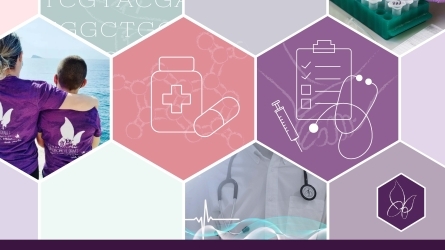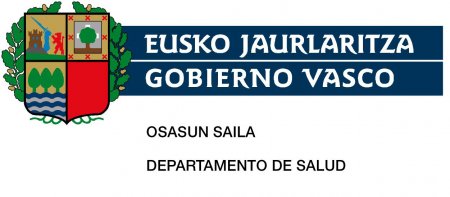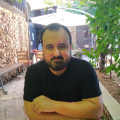
Diagnóstico, tratamiento y manejo del síndrome de Dravet
Description
El síndrome de Dravet (SD) es una enfermedad neurológica grave e incapacitante de origen genético. Con una incidencia de 1 entre 16.000 nacimientos, el SD se encuadra en el grupo de enfermedades poco frecuentes (1/2.000). En España se estima que debe haber alrededor de 450-500 pacientes correctamente diagnosticados con SD. Sin embargo, los datos de prevalencia de la enfermedad sugieren que este número debe ser superior a los 1.500.
Uno de los síntomas más visibles en el SD es la epilepsia, la cual comienza a manifestarse en el primer año de vida. Las crisis epilépticas iniciales en el SD suelen ser prolongadas y difíciles de controlar, derivando en estados epilépticos y requiriendo el ingreso de los pacientes en las UCIs. En edades más avanzadas el retraso cognitivo se hace evidente y aparecen otros trastornos neurológicos y alteraciones graves de la conducta. Entre el 15 y el 20 % de las personas con SD fallece prematuramente a causa de la enfermedad.
En España existen actualmente ocho Centros, Servicios y Unidades de Referencia del Sistema Nacional de Salud en epilepsia refractaria, donde se podría encuadrar el SD. Sin embargo, el SD es mucho más que una epilepsia, y su abordaje ha de ir más allá de tratar solo las crisis epilépticas. El SD debe ser manejado desde un punto de vista multidisciplinar, involucrando a profesionales sanitarios de diferentes áreas. Por tanto, no existe ningún centro completamente preparado para la complejidad y multidisciplinariedad que implica el manejo y tratamiento del SD.
Este Curso de Verano plantea aspectos esenciales para el correcto abordaje del SD: (1) Descripción de los signos y síntomas del SD y epilepsias relacionadas que pueden facilitar un diagnóstico clínico y genético, (2) Discusión sobre las opciones de tratamiento emergentes para el SD en el contexto del paradigma de tratamiento actual, y (3) Descripción del papel del equipo multidisciplinar en el manejo de los pacientes con SD.
Objectives
Introducir al alumnado en el conocimiento de una enfermedad que, por su condición de poco frecuente, difícilmente estudiarán durante sus años de entrenamiento como futuros médicos.
Adelantarse a la educación que recibirán durante futuras residencias formativas en centros y unidades docentes acreditadas para la adquisición de competencias profesionales propias de su especialidad.
Introducir o ampliar los conocimientos del alumnado profesional acerca de una enfermedad severa infradiagnosticada y no siempre bien atendida.
Generar el interés del alumnado por trabajar en un futuro con un grupo de pacientes y familias que necesita de profesionales preparados que le proporcione todos los cuidados a su alcance.
Generar a su vez el interés del alumnado por investigar en SD.
Activity directed to
- University student
- Students not from university
- Teachers
- Professionals
- All public
Program
20-07-2022
“Registro“Presentation by the Director of the activity
- José Ángel Aibar --- | Fundación Síndrome de Dravet - Presidente
“Signos y síntomas del SD. Diagnóstico diferencial con respecto a otras epilepsias relacionadas.“
- Susana Boronat | Hospital de la Santa Creu i Sant Pau - Directora del Servicio de Pediatría
“Diagnóstico genético del SD y epilepsias relacionadas“
- Susana Boronat | Hospital de la Santa Creu i Sant Pau - Directora del Servicio de Pediatría
Break
“Retos clínicos a la hora de realizar un diagnóstico“
- Susana Boronat | Hospital de la Santa Creu i Sant Pau - Directora del Servicio de Pediatría
Synthesis
21-07-2022
Presentation by the Director of the activity
- José Ángel Aibar --- | Fundación Síndrome de Dravet - Presidente
“Enfoques actuales en el tratamiento del SD“
- Vicente Villanueva Haba | Hospital Universitario y Politécnico La Fe - Jefe de la Unidad de Epilepsia Refractaria y del Programa de Cirugía de Epilepsia
“Datos más recientes sobre la eficacia y seguridad de nuevos fármacos. Terapias avanzadas en investigación para SD y papel del paciente en el desarrollo de nuevos tratamientos.“
- Patricia Smeyers Durá | Hospital Universitario y Politécnico La Fe - Neuropediatra de la Unidad de Epilepsia Refractaria
- José Ángel Aibar --- | Fundación Síndrome de Dravet - Presidente
Break
“Desafíos clínicos y tratamiento de emergencia“
- Patricia Smeyers Durá | Hospital Universitario y Politécnico La Fe - Neuropediatra de la Unidad de Epilepsia Refractaria
Synthesis
22-07-2022
Presentation by the Director of the activity
- José Ángel Aibar --- | Fundación Síndrome de Dravet - Presidente
“Impacto del enfoque de equipo multidisciplinar en la calidad de vida y bienestar del paciente y su familia“
- Carla Bonafé Canet | Fundación Síndrome de Dravet - Neuropsicóloga
“El papel de las organizaciones de pacientes en el apoyo a las familias“
- José Ángel Aibar --- | Fundación Síndrome de Dravet - Presidente
Break
“Función de los miembros del equipo central y otros profesionales“
- Eulàlia Turón Viñas | Hospital de la Santa Creu i Sant Pau - Coordinadora Unidad de Neuropediatría
Synthesis
Closing session
- José Ángel Aibar --- | Fundación Síndrome de Dravet - Presidente
Directors
Elena Cardenal Biologia Molekularrean eta Biomedikuntzan doktorea da. Urte askoz Espainian eta Suizan zientzilari lanean aritu da. Azken urtetan, Elenaren karrera kudeaketa eta komunikazio zientifiko aldera jo du, Life Siences Switzerland (LS2) erakunderako zientzia-zuzendari lanetan, baita erakunde zientifiko anitzetan sare sozialen editore eta kudeatzaile lanetan ere. Gaur egun, Elena Dravet Sindrome Fundazioko Ikerketa Zuzendaria da, gaixo erakunde honek martxan jarritako zientzia eta medikuntza jarduera guztien plangintza, antolakuntza, sustapena eta zuzendaritzaz arduratuz.
Jose Ángel Aibar has an international background in both electronics and aerospace engineering, and holds a management position in a leading technology company. One of his children has Dravet syndrome, which gave him the motivation to become involved with the Dravet Syndrome Foundation Spain, where he serves as president and chief executive officer since June 2018.
Speakers
Jose Ángel Aibar has an international background in both electronics and aerospace engineering, and holds a management position in a leading technology company. One of his children has Dravet syndrome, which gave him the motivation to become involved with the Dravet Syndrome Foundation Spain, where he serves as president and chief executive officer since June 2018.

Carla Bonafé Canet
Carla is a Psychology graduate by Universidad de Valencia. Plus, later, she studies two psychology master, learning child and clinic neuropsychology in the Superior Psychological Study Institute (ISEP). Her professional and before career has always been related to intellectual and developmental discapacities, being a volunteer in different entities and carrying out a variety of programs aiming at making disabled people’s lives better, such as: leisure and independent living programs, educational reinforcement, bullying and addiction prevention programs and labor formation on protected work programs in the ecologic agriculture area.

Susana Boronat
Susana Boronat MD, PhD, was trained as a pedriatic neurologist in Vall d-Hebron hospital, in Barcelona, where later she did most of her neuropedriatic clinic work, specializing herself in dismophologic syndroms and genetic based neurologic illnesses. She undertook her PhD on type 1 Chiari malformation at the Universitat Autònoma de Barcelona. From 2011 to 2013 she carried out a clinic investigation fellowship in Massachusetts General Hospital, in Boston, at the children epilepsy and tuberous sclerosis department, directed by Dr. Elisabeth Thiele, and completed her education in research, neurogenetics and dysmorphology in Harvard University. From 2016 to 2018, she worked as a clinic geneticist at the Vall d’Hebron hospital Genetics Unit. Since 2018 she is the pediatric director of la Santa Creu i Sant Pau hospital in Barcelona. She keeps working as a neuropedriatist and clinic geneticist, focusing on genetic based epilepsy.

Patricia Smeyers Durá
Dr. Patricia Smeyers is a Child Neurologist at of Hospital Univ. y Politécnico La Fe in Valencia, being the head of the pediatric section of the Multidisciplinary Functional Unit CESUR of Refractory Epilepsy and Epilepsy Surgery. PhD in Medical Genetics and awarded with the Extraordinary Prize by the University of Valencia for her Doctoral Thesis on Clinical Molecular Genetics of Friedreich's Ataxia, contributing to the isolation of the responsible gene. Neurology, Pediatrics and Clinical Neurophysiology specialist, she made training stays in epilepsy at King's College Hospital in London (UK) and at the University of Göteborg (SE). With a Childcare degree and a Clinic Neuropsychology PhD. In addition to her dedication to a lot of scientific activities of interest in the field of refractory epilepsies of genetic origin, her social involvement stands out with the publication of children's stories to understand epilepsy, a work awarded in 2011 by the Spanish Society of Neurology (SEN).
Eulàlia Turón Viñas
EDUCATIONAL BACKGROUND Degree: Medicine and Surgery from the University of Barcelona (UB) (1996-2002). Specialist degree: Pediatrics and its specific areas. Hospital Sant Pau (2003-2007). Master in Neuropediatrics by the University of Barcelona. Sant Joan de Déu Hospital (2008-2010). Doctorate in the Pediatrics, Obstetrics and Preventive Medicine and Public Health program at the Universitat Autònoma de Barcelona (UAB) September 2020. Epilepsy Fellowship at Hospital del Mar (2020 – 2021) PROFESSIONAL EXPERIENCE Pediatrician specialized in Neuropediatrics and Pediatric Critical Care. Management of pediatric neurocritical patient. Coordinator of the Neuropediatrics Unit at Hospital Sant Pau. Coordinator of the Epilepsy Unit’s pediatrics section at Hospital del Mar – Hospital Sant Pau Associate Professor of the Degree of Medicine of the UAB, of the Master of Neuropsychology of the UAB - Hospital Sant Pau and of the Master of Pediatric Nursing of the UB - Hospital Bellvitge.
Vicente Villanueva Haba
Vicente Villanueva MD, PhD, is a neurologist in Hospital La Fe, Valencia, since 2004. Since 2005 he also works at the La Fe Multidisciplinary Epilepsy Unit, where he is Head of the Refractory Epilepsy Unit and Epilepsy Surgery Programme. He serves as a representative of the European Reference Network Epi-CARE and is a member of the ILAE Intellectual Disability Task Force. He is an Associate Professor of Neurology at the Univ. of Valencia since 2017. Dr Villanueva undertook his training at Fundación Jiménez Diaz in Madrid (ES), Epilepsy Center of Univ. of Alabama (US), Epilepsy Center of New York Univ. (US) and Hôpital Saint-Vincent de Paul in Paris (FR). His current research interests include refractory epilepsy, video-EEG monitoring, and epilepsy clinical trials and surgery. Vicente is a member of the EEG board and the Epilepsy Guidelines Board of the Spanish Neurological Society, which awarded him in 2014 with the Scientific Prize in epilepsy and author of more than 100 articles about epilepsy.
Registration fees
| Live online | Until 20-07-2022 |
|---|---|
| 10,00 EUR | |
| 2,50 EUR | |
| 0 EUR |
Venue
Live online
Live online
Sustainable development goals
Agenda 2030 is the new international development agenda approved in September 2015 by the United Nations. This agenda aims to be an instrument to favour sustainable human development all over the planet, and its main pillars are the eradication of poverty, a reduction in equality and vulnerability and fostering sustainability. It is a unique opportunity to transform the world up to 2030 and guarantee human rights for all.

3 - Good health and well-being
Guarantee a healthy life and foster the well-being of all people of all ages. Key issues: universal healthcare coverage, sexual and reproductive health, reduction in the number of road accident casualties, pollution and chemical products, reduction in maternal and neonatal mortality, the end of epidemics such as AIDS, combating hepatitis and other water-borne diseases, drug and alcohol prevention, control of tobacco.
More information








